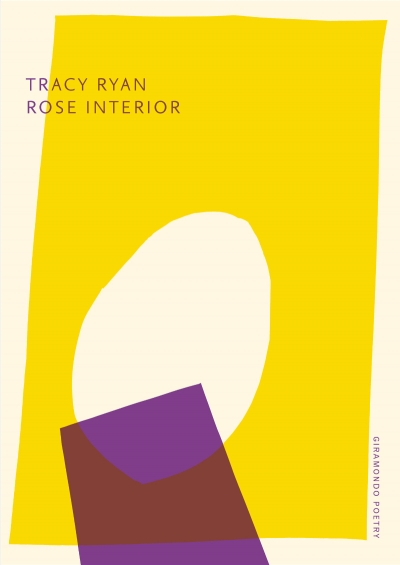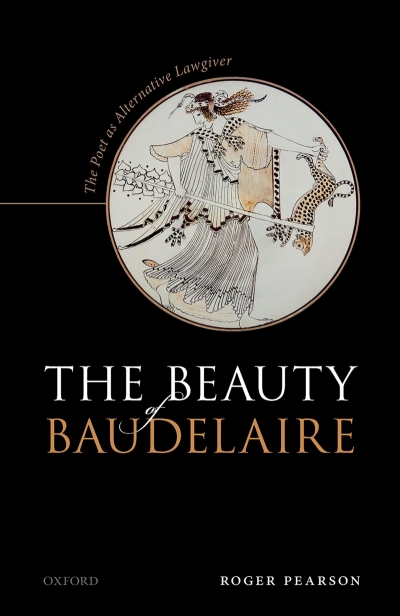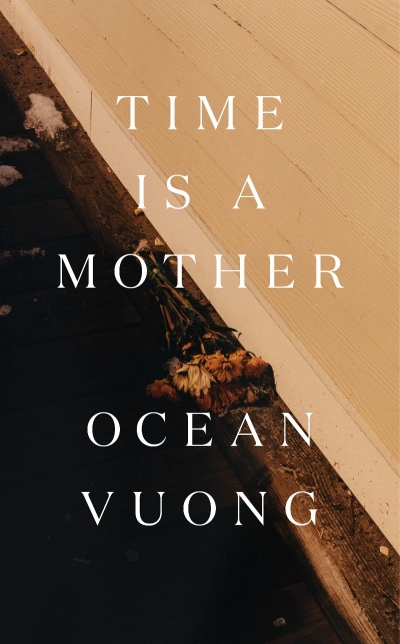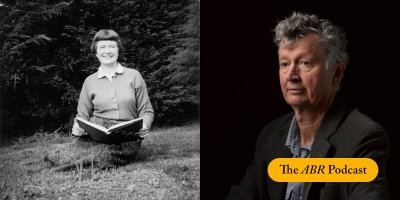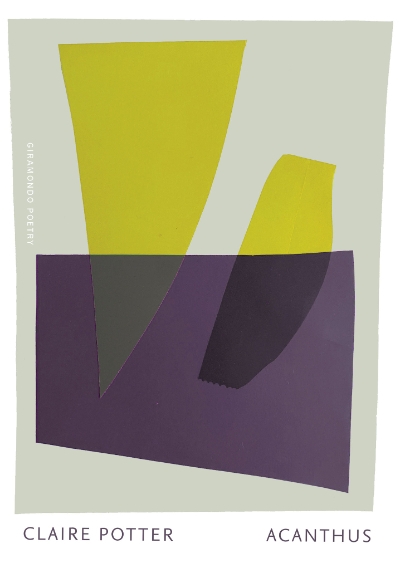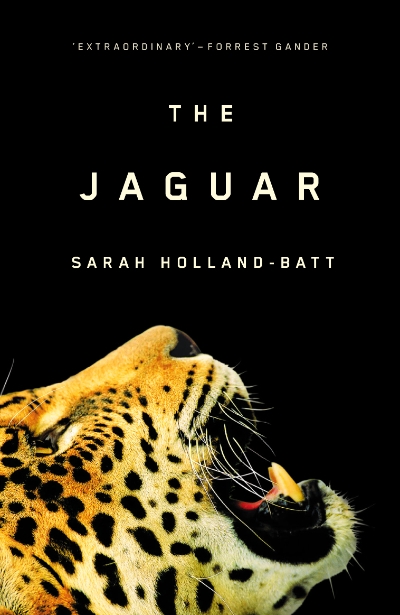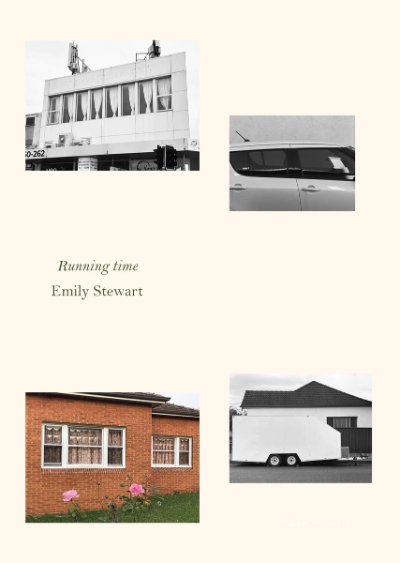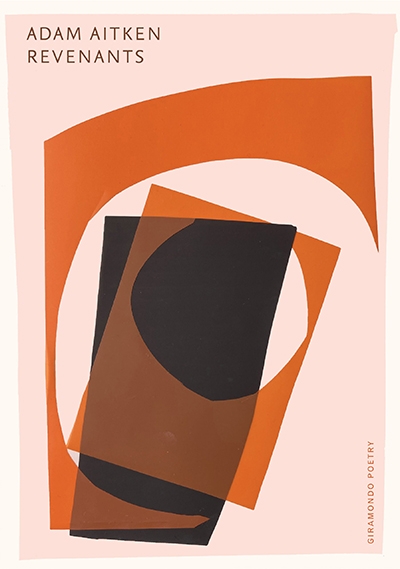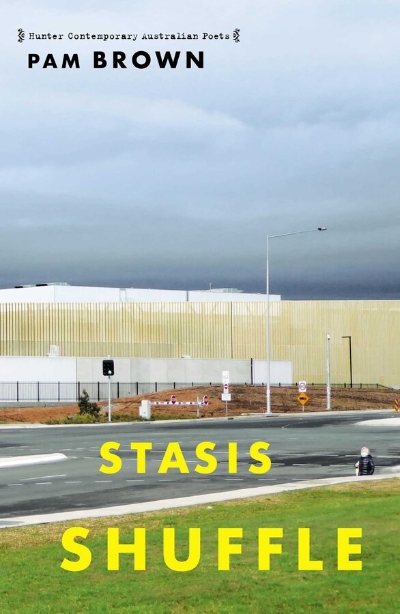Poetry
Umberto Eco once described the text as a ‘lazy machine asking the reader to do some of its work’; to contribute, in other words, to the production of meaning. Poetry has a particular reputation for being demanding, but Tracy Ryan’s tenth poetry collection, Rose Interior, isn’t challenging in the way that Eco envisages. It is less about engaging readers in the masculinist energy of the ‘machine’ and ‘work’ than about inviting them into a feminine world of domestic spaces and quotidian phenomena ...
... (read more)The Beauty of Baudelaire: The poet as alternative lawgiver by Roger Pearson
The life and work of Charles Baudelaire (1821–67) must be viewed against the historical background of the crushing failure of the Paris revolution of 1848, in which soldiers massacred three thousand workers. In the elections that followed this unsuccessful working-class uprising, which Baudelaire and his fellow artists supported, the French Romantic poet Alphonse de Lamartine received 18,000 votes, while Louis Napoleon received fifteen million.
... (read more)Every time I open Ocean Vuong’s Time Is a Mother, that Sam & Dave lyric ‘Hold on, I’m comin’!’, pops into my head. Is it ars poetica? Hold on: language, arranged in a holding way, might help us manage loss, though no hold will forestall it. I’m coming: the radical presence of the poetic speaker, whose ecstatic ‘now’ of speech exists in strange tension with the past, a thing lost, that full and irretrievable ‘then’. Anne Carson has written memorably of the strange telescoping of now and then in lyric poetry. This is the dilemma of the poet–lover: ‘pinned in an impossible double bind, victim of novelty and recurrence at once.’ Or, as Vuong puts it, ‘[t]he way Lil Peep says I’ll be back in the mornin’ when you know how it ends.’
... (read more)Ann-Marie Priest’s My Tongue Is My Own, published by La Trobe University Press and reviewed in our June issue, is the first authorised biography of the Australian poet Gwen Harwood (1920–1995). Unsurprisingly, this was not the first attempt to record the life of one of Australia’s most loved and admired poets. In an exclusive feature for ABR, John Harwood reflects on the conflicting motives behind his literary executorship of his mother’s estate – an estate holding the secrets to an at-times fractious marriage between two opposing temperaments.
... (read more)Virginia Woolf, in her seminal essay on modern fiction (1919), might have been describing Claire Potter’s method in her fabulous and highly original new collection: Acanthus. These poems seem to break apart consciousness before it becomes encoded, crystalised, as syntax. As a consequence, they have an uncanny and richly compelling ability to lead you away from the dimension in which you think you have entered the poem, in its opening lines, into something entirely different by the time you have reached the end. Somewhere between the beginning and the end something can be depended on to have shifted – mood, pace, imaginative compass bearing, subject plane.
... (read more)I first encountered Sarah Holland-Batt’s poem ‘The Gift’ in The New Yorker. It begins, ‘In the garden my father sits in his wheelchair / garlanded by summer hibiscus / like a saint in a seventeenth-century cartouche’ – an unremarkable opening, I thought, to a poem of personal anecdote, a genre too ubiquitous among our contemporaries. Rereading the poem in the context of her third collection, The Jaguar, I became acclimated to her style and manner, and admired the alertness of its verbal performance. If the new book remains a personal memoir, narrating the devastating illness and death of her father, it is also charged throughout with a strong writer’s intelligence and vulnerability. ‘I will carry the gift of his death endlessly,’ she writes, ‘every day I will know it opening in me.’
... (read more)Running time by Emily Stewart & Inheritance by Nellie Le Beau
The lyric subject, literature’s most intimate ‘I’, has vexed critics for centuries. Is it the poet? Is it a fiction, a device? Or is the relation between author and speaker, as Jonathan Culler suggests, ‘indeterminate’, such that ‘any model … that attempts to fix or prescribe that relationship will be inadequate’? Two new award-winning Australian poetry collections offer fine-grained considerations of personhood and the poem’s capacity to represent it.
... (read more)We moved out from the stone of Mallarmé’s mind, through silence of thought
... (read more)Since his first collection, Letter to Marco Polo (1985), Adam Aitken has been at the forefront of the diversification of Australian poetry as it moved, slowly but irreversibly, to incorporate multicultural and transnational voices. Aitken has always been a world citizen. He was born in London in 1960 to an Anglo-Australian father and Thai mother, with his childhood thereafter spent between the United Kingdom, Thailand, Malaysia, and Australia. As a young man, he attended Sydney University and embarked upon a long career as a poet, editor, and teacher which was recently recognised with the 2021 Patrick White Award.
... (read more)The reader of Stasis Shuffle is immediately confronted with the collection’s naming convention. Titles of poems and sections are parenthesised, for example, ‘(best before)’, ‘(weevils)’, ‘(& then). More than simple stylisation, this convention suggests that every poem is a fragment, a meander through consciousness. The first poem, ‘(best before)’, begins ‘liberated / from the drudgery / of usefulness’, a quote from Walter Benjamin. From there, Stasis Shuffle wanders flâneur-style through language, politics, and many different kinds of plant life. The central arc of Stasis Shuffle, however, is its self-consciousness about subjectivity and process. ‘(best before)’ asks ‘is your slowly accreting poem / morphing into a larger cloud yet’? As the collection unfolds, poems begin to comment on themselves and the writing process.
... (read more)
